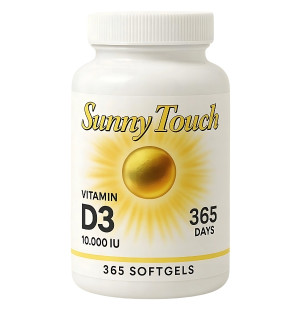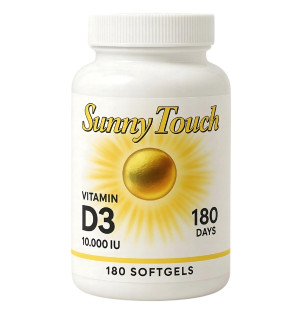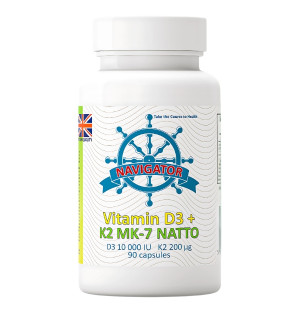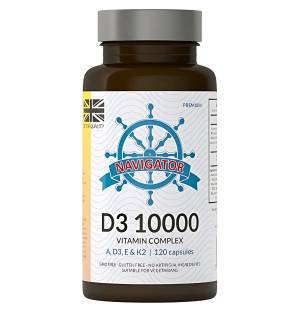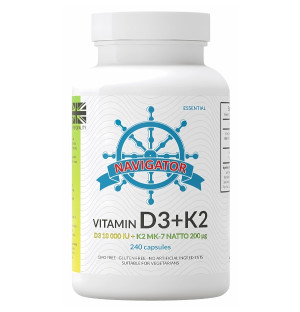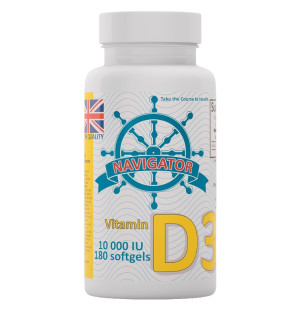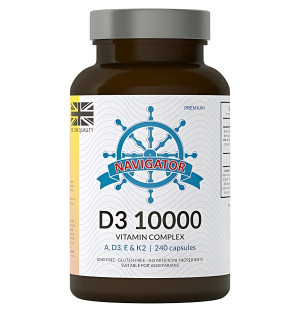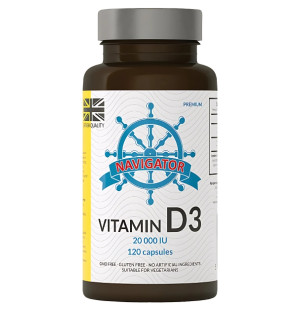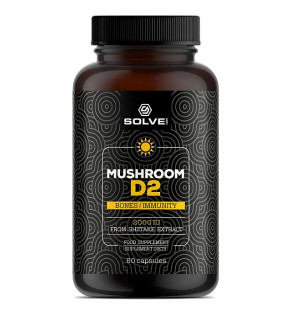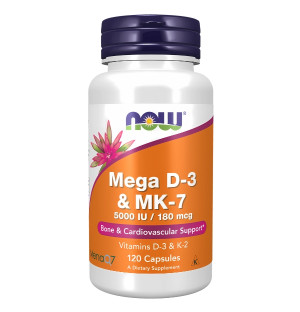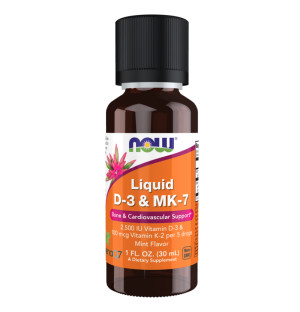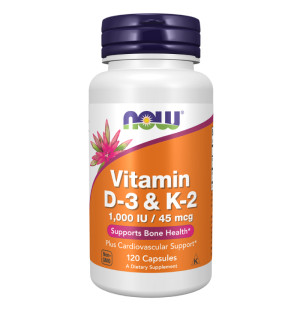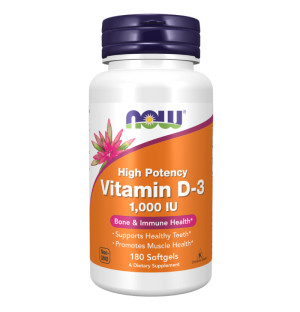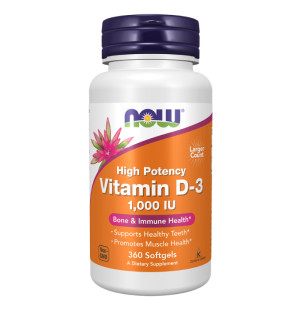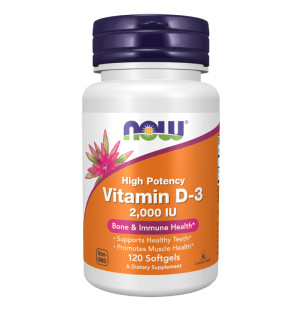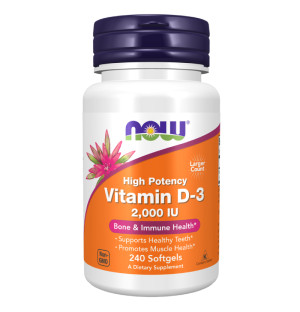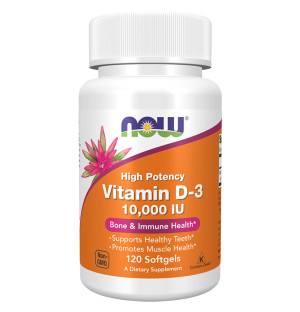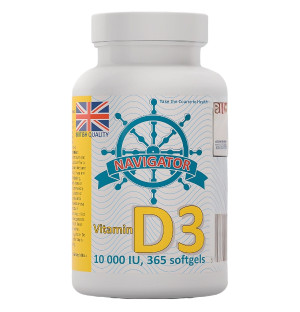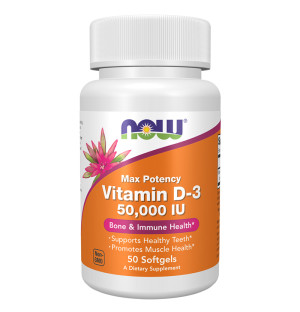Vitamin D
Vitamin D - support for bone health, immunity and metabolic function
Vitamin D, often referred to as the 'sunshine vitamin', is one of the most important vitamins for human health. It plays a key role in maintaining healthy bones and teeth, supports the immune system, muscle function and the cardiovascular system. Vitamin D is also essential for the body's normal calcium-phosphate balance. Although it is produced in the skin when exposed to sunlight, deficiencies of this vitamin are common, especially in countries with less sun exposure, during the winter months or among people with lifestyles that limit time spent outdoors.
Vitamin D supplements are hugely popular due to their broad spectrum of health benefits, which include support for the skeletal system, immune system, mental health and metabolism. Vitamin D is available in two main forms: vitamin D2 (ergocalciferol) of plant origin and vitamin D3 (cholecalciferol), which the body produces when exposed to the sun and which is found in animal products.
Role and health benefits of vitamin D
✅ Bone and teeth health: Vitamin D plays a key role in regulating calcium and phosphate metabolism. It assists in the absorption of calcium and phosphorus from the diet, which is essential for bone mineralisation and the maintenance of bone health and strength. Vitamin D is particularly important in the prevention of osteoporosis and rickets. Vitamin D supplementation is recommended especially for the elderly, who have an increased risk of bone fractures and compromised dental health.
✅ Strengthening the immune system: Vitamin D supports the body's immune function by activating white blood cells that fight infections and pathogens. Research indicates that adequate levels of vitamin D can reduce the risk of viral and bacterial infections, such as colds, flu and respiratory infections. Regular supplementation with vitamin D supports the immune system, which helps fight infections and improves overall immunity.
✅ Supporting mental health and cognitive function: Vitamin D deficiencies have been linked to lowered mood, mental fatigue and an increased risk of depression, especially during autumn and winter when sun exposure is limited. Vitamin D affects the production of neurotransmitters such as serotonin, which regulates mood. Regular vitamin D supplementation can improve mood, concentration and memory and reduce the risk of seasonal depression (SAD).
✅ Support muscle function and metabolic health: Vitamin D supports muscle health by influencing the normal function of the musculoskeletal system. Vitamin D deficiency can lead to muscle weakness, which increases the risk of falls, especially in older people. In addition, vitamin D affects glucose and insulin metabolism, which can support blood sugar control and prevent insulin resistance and type 2 diabetes.
✅ Supporting cardiovascular health: Vitamin D supports cardiovascular health by helping to regulate blood pressure and reducing the risk of heart disease. Vitamin D deficiencies can lead to an increased risk of cardiovascular diseases such as hypertension, atherosclerosis and heart attack.
✅ Protection against autoimmune diseases: Vitamin D helps to regulate the immune system response, which can protect against an excessive autoimmune response, in which the body attacks its own cells. Research suggests that vitamin D supplementation may reduce the risk of developing autoimmune diseases such as multiple sclerosis, rheumatoid arthritis and Crohn's disease.
Forms of vitamin D
-
Vitamin D3 (cholecalciferol): This is the most effective and bioavailable form of vitamin D. The body produces it naturally when exposed to sunlight, and vitamin D3 supplementation best supports bone health, the immune system and metabolic health. Vitamin D3 is also found in animal products such as oily fish, eggs and cod liver oil.
-
Vitamin D2 (ergocalciferol): Vitamin D2 is of plant origin and is often used in supplements for vegetarians and vegans. Although less bioavailable than D3, it also supports bone and immune system health, albeit to a slightly lesser extent.
-
Liposomal vitamin D: In this form, vitamin D is encapsulated in liposomes (small fatty molecules), which increases its absorption by the body. Liposomal vitamin D provides better bioavailability, making it a popular choice for people with vitamin absorption problems.
Symptoms of vitamin D deficiency
- Bone and muscle weakness: People with vitamin D deficiency may experience bone pain, muscle weakness and more frequent fractures. In extreme cases, osteoporosis or rickets (in children) may occur.
- Weakened immunity: Frequent infections, especially respiratory infections, can result from a weakened immune system associated with vitamin D deficiency.
- Fatigue and weakness: Vitamin D deficiency can lead to chronic fatigue, muscle weakness, and problems with recovery after exercise.
- Mental health problems: People with vitamin D deficiency may experience lowered mood, depression, concentration problems and mental fatigue.
Who should consider vitamin D supplementation?
❎ People with limited sun exposure: Vitamin D supplementation is particularly important for people who do not spend enough time outdoors, especially during the winter months.
❎ Older people: As we age, the body produces less vitamin D, so older people are more likely to be deficient, increasing the risk of osteoporosis and fractures.
❎ People with a sedentary lifestyle: People who spend most of their time indoors, such as working at a desk, are at greater risk of vitamin D deficiency.
❎ Pregnant and breastfeeding women: Vitamin D is essential for normal bone development in the foetus and newborn, so supplementation may be recommended for pregnant women and nursing mothers.
❎ People with dark skin: Skin with a darker complexion produces less vitamin D when exposed to sunlight, increasing the risk of deficiency.
❎ People with bone and joint problems: People suffering from osteoporosis, arthritis or bone pain can benefit from vitamin D supplementation to support bone health.
Summary
Vitamin D is essential for bone health, the immune system, mental health and the overall functioning of the body. It helps with calcium absorption, supports the nervous and muscular systems, and protects against heart disease, depression and infections. Regular vitamin D supplementation is particularly important during periods of less sun exposure and for those with lifestyles that limit time spent outdoors. Vitamin D is available in a variety of forms, including vitamin D3 (best absorbed), D2 (for vegans) and in liposomal forms, allowing supplementation to be tailored to individual health needs.

